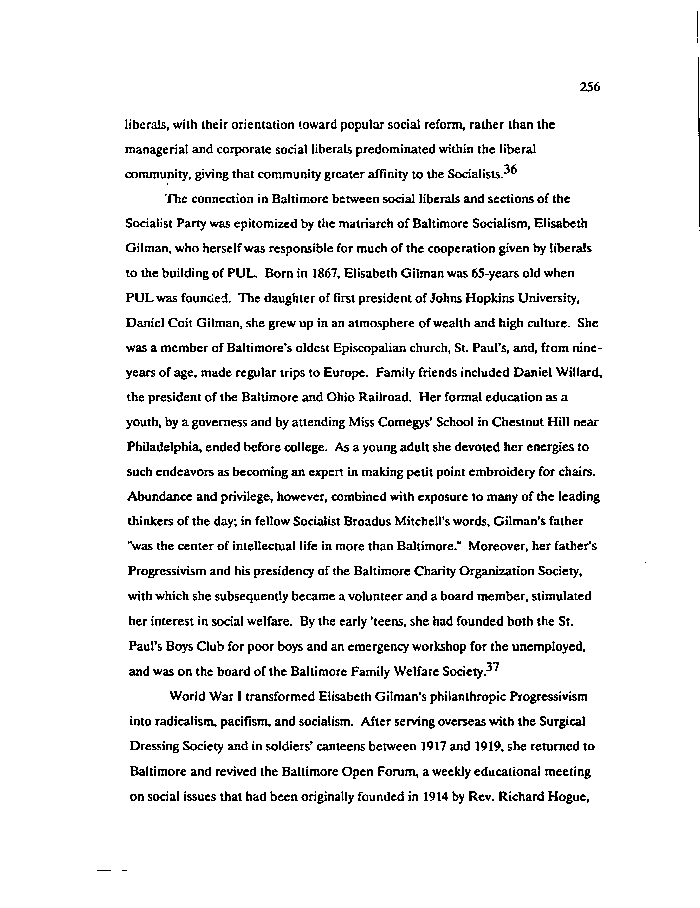|
256
liberals, with their orientation toward popular social reform, rather than the
managerial and corporate social liberals predominated within the liberal
community, giving that community greater affinity to the Socialists.
The connection in Baltimore between social liberals and sections of the
Socialist Party was epitomized by the matriarch of Baltimore Socialism, Elisabeth
Oilman, who herself was responsible for much of the cooperation given by liberals
to the building of PUL. Born in 1867, Elisabeth Oilman was 65-years old when
PUL was founded. The daughter of first president of Johns Hopkins University,
Daniel Coit Oilman, she grew up in an atmosphere of wealth and high culture. She
was a member of Baltimore's oldest Episcopalian church, St. Paul's, and, from nine-
years of age, made regular trips to Europe. Family friends included Daniel Willard,
the president of the Baltimore and Ohio Railroad. Her formal education as a
youth, by a governess and by attending Miss Comegys* School in Chestnut Hill near
Philadelphia, ended before college. As a young adult she devoted her energies to
such endeavors as becoming an expert in making petit point embroidery for chairs.
Abundance and privilege, however, combined with exposure to many of the leading
thinkers of the day; in fellow Socialist Broadus Mitchell's words, Oilman's father
"was the center of intellectual life in more than Baltimore." Moreover, her father's
Progressivism and his presidency of the Baltimore Charity Organization Society,
with which she subsequently became a volunteer and a board member, stimulated
her interest in social welfare. By the early 'teens, she had founded both the St.
Paul's Boys Club for poor boys and an emergency workshop for the unemployed,
and was on the board of the Baltimore Family Welfare Society.
World War I transformed Elisabeth Oilman's philanthropic Progressivism
into radicalism, pacifism, and socialism. After serving overseas with the Surgical
Dressing Society and in soldiers' canteens between 1917 and 1919, she returned to
Baltimore and revived the Baltimore Open Forum, a weekly educational meeting
on social issues that had been originally founded in 1914 by Rev. Richard Hogue,
|

